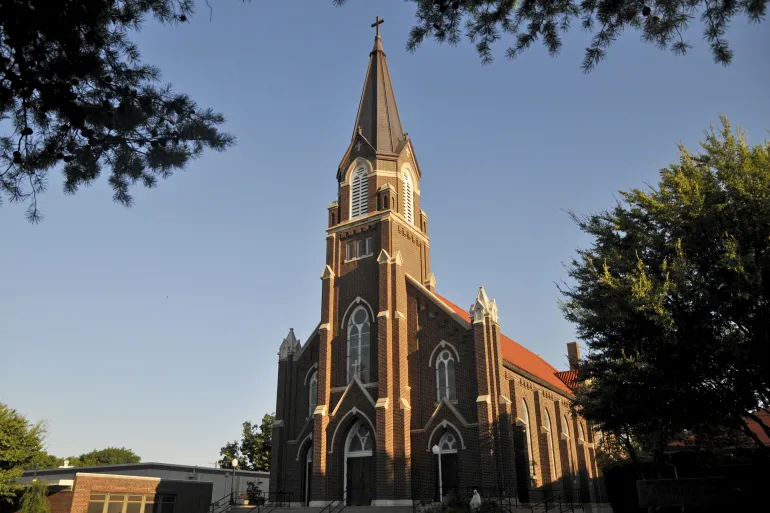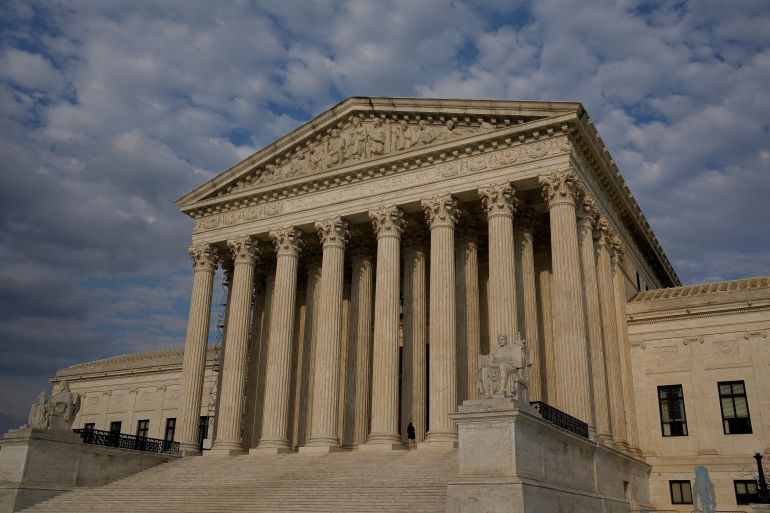Proposal for taxpayer-funded religious charter school fails in US

An Oklahoma board voted 5-0 to reject an application for the US’s first taxpayer-funded religious charter school.

An Oklahoma school board has unanimously voted down an application to launch a taxpayer-funded religious charter school, which would have been the first of its kind in the United States.
The vote creates the potential for a lengthy legal fight over taxpayer money, education and the separation between church and state in the US.
The Catholic Archdiocese of Oklahoma City submitted the application in the hope of founding the St Isadore of Seville Catholic Virtual Charter School, a first-of-its-kind public institution that would offer online religious education from kindergarten through high school.
If the proposal had been accepted, the school planned to take in an inaugural class of 500 in 2024, gradually expanding its student body to 1,500.
But members of the Oklahoma Statewide Virtual Charter School Board voted 5-0 to reject the application, though it side-stepped the thorny question of whether approving such a school would violate the Establishment Clause of the US Constitution.
That clause is generally interpreted as prohibiting the US government from “establishing” a specific religion through its laws or actions, showing favour to one over another.
“The application has been made. We have to make a decision as a board. But we’re not going to be able to answer that legal question with the legal expertise that we have or the resources that are at our fingertips. And so it will go to courts to ultimately decide where that lands,” board member Robert Franklin said at Tuesday’s meeting, which was broadcast online.

“We don’t know that it’s going to go to court,” he later added, as the board mulled whether to abstain from the vote or obtain legal counsel. “But we have a pretty good indication it’s going to go to court.”
The members of the virtual charter school board were all appointed by Republican-led state leadership. Oklahoma Governor Kevin Stitt previously expressed support for religious charter schools as an extension of the religious protections under the First Amendment of the US Constitution.
The board had 90 days to adjudicate the application, which was submitted on January 30. Charter schools in the US are publicly funded but function independently from the local school districts, raising accusations they funnel money away from traditional public school systems.
The taxpayer cost of the St Isadore proposal was estimated at $25.7m for its first five years of operation.
Before Tuesday’s vote, the board heard public comments. Erika Wright, the founder of the Oklahoma Rural Schools Coalition and an advocate against school privatisation, was the first to take the podium, arguing against the St Isadore application.
She pointed out that, in 2016, Oklahoma voters rejected a proposal that would have repealed state law barring public money from being applied “for the use, benefit or support” of any specific religion.
“This proposition today before you is a clear violation of the Establishment Clause and our state constitution,” she said.
She added: “I am greatly concerned that this Pandora’s box will open up the door for a massive expansion of publicly funded religious charter schools across the state, in a brick-and-mortar format. Because once we allow it virtually, brick-and-mortar is the natural business progression.”

But a non-voting member of the board, Ryan Walters, the state superintendent of public instruction – dismissed the criticisms as stemming from “radical leftists”.
“Their hatred for the Catholic Church has caused them to attack our very foundational religious liberties,” he said during the meeting.
He described the St Isadore proposal as an opportunity to advance First Amendment religious protections: “We have an application to provide more opportunities for kids and to show Oklahoma is a state that truly values religious freedom.”
The Catholic Church now has 30 days to respond to the board’s rejection and revise its application. It has advocated for the school on the basis that it would give rural and remote students access to Catholic education online, should they not be able to reach a brick-and-mortar building.
The board was critical of inconsistencies in the school’s proposed governance structure and its description of its special education facilities and funding model. But while the board voted down the application on Tuesday, it can still vote to approve a revised version at a later date.
Church officials have indicated that they hope cases like that of St Isadore ultimately reach the US Supreme Court, where a conservative majority has shown sympathy for similar cases in the past.
Just last year, the court’s majority ruled in favour of offering private-school vouchers for religious institutions in Maine.
Its rationale in that case, Carson v Makin, was that the state had discriminated against religious schools by excluding them from the school voucher programme.







